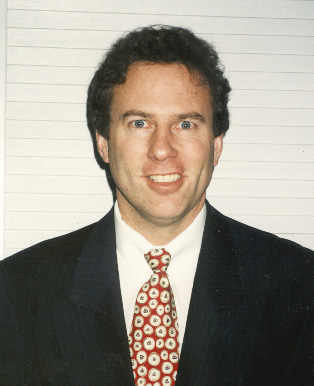Litigation and the New OVDs and MVPD Wannabees: Follow That Money!

The smarter way to stay on top of the multichannel video marketplace. Sign up below.
You are now subscribed
Your newsletter sign-up was successful
Recently, I had the opportunity to meet for lunch with ivi CEO, Todd Weaver.
I preceded the meeting with a thorough reading of the August 27, 2012 appellate court decision in the case brought against him and his online video upstart, called ivi (pronounced like the ubiquitous vine, the ivy plant).
In this most recent ivi decision, the second circuit federal court of appeals affirmed a lower court ruling that imposed an injunction against ivi, stopping ivi’s online delivery of broadcast over-the-air signals. This late summer 2012 decision told the Seattle, Wash.-based internet broadcast channel distribution system that it could no longer deliver those online broadcast over-the-air signals without the prior express authorization of the broadcast copyright holders, which, in this instance, are the national broadcasters and their content owners (See, WPIX et al vs. ivi, docket # 11-788-cv).
What struck me as I pondered the macro elements of the ivi quandary, is how the various courts and their respective judges are interpreting what a set of online video distributors (OVDs) and Multichannel Video Programming Distributor (MVPD) Wannabees (as I call them) are trying to do with their carriage of broadcast and other video.
In this realm of would-be OVDs and MVPD Wannabees are the companies including Zevida, ivi, FilmOn, and Aereo ne Bamboom.
Also, in a related sense, there is Dish Network, with its new Hopper set-top box, inasmuch as it, too, is challenging the rules and the status quo relative to how broadcast content gets distributed.
Unlike ivi, Aereo has instead withstood its first test.
The smarter way to stay on top of the multichannel video marketplace. Sign up below.
Aereo was able to convince a New York federal judge in its case that it should be allowed to continue distributing broadcast signals via the Internet. Indeed, one might argue that the decisions of the two federal judges are in conflict in the Aereo vs. ivi cases. Interestingly, the judge in Aereo seemed to have relied quite a bit on the U.S. Supreme Court decision in the Cablevision Remote Storage DVR case (RS-DVR), even though the two technologies deployed and the business models involved are different.
It is also interesting to note that in the ivi case, it is judged unacceptable to deliver the signals without negotiating retransmission consent ahead of time, whereas something similar is permitted by the judge in Aereo. Indeed, in both cases, someone else besides the broadcaster is standing in the middle as a delivery vehicle, reaping a monetary benefit, and perhaps not necessarily paying the broadcasters a proper retransmission consent fees.
Then there is the Hopper vs. Broadcasters case. The Hopper case is fascinating because it simply takes the original, “fair use” Sony Betamax decision to its logical conclusion, by challenging how a consumer should be able to actually control his/her own private content, and thus how quickly he/she can skip through TV advertisements. Once again, something worth noting in these decisions is where the money resides (or does not reside).
And that “money trail” promises to be an ultimate determinant in each and every one of these OVD and MVPD Wannabee case decisions. Indeed, it will be fascinating to watch the courts attempt to reconcile these new OVD and MVPD Wannabee cases with one another, and with that all important “money trail.” Were I one to predict a route, I would suggest that all of these factors will be absolutely critical to each and every judge that proceeds down this Alice-In-Wonderland-like path toward a decision.
Put another way, I doubt whether just such a decision, under the current set of ivi facts, helped Todd Weaver to better digest his lunch (or at least as that decision relates, in the future, to the rest of ivi’s appeal).
Jimmy Schaeffler is chairman and CSO of Carmel-by-the-Sea-based consultancy The Carmel Group (www.carmelgroup.com).
Jimmy Schaeffler is chairman and CSO of The Carmel Group, a nearly three-decades-old west coast-based telecom and entertainment consultancy founded in 1995.

